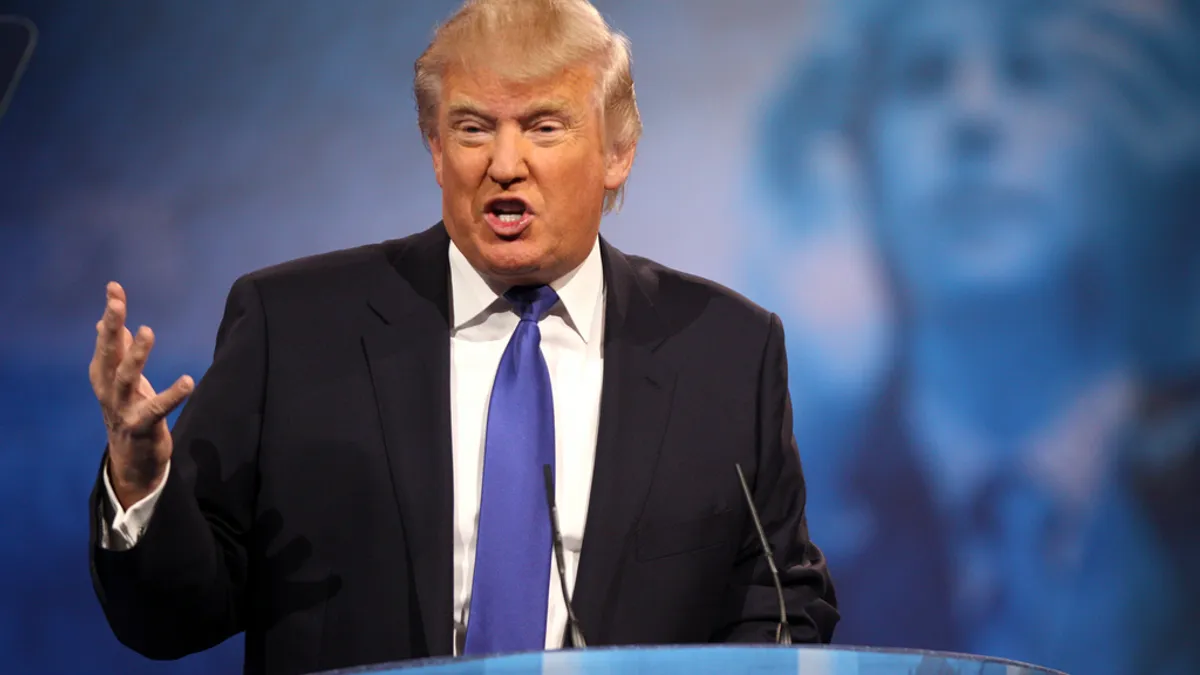Dive Brief:
- Days ahead of the inauguration, President-elect Donald Trump expressed displeasure at the Republicans' proposed border adjustment tax in an interview with The Wall Street Journal reported Monday.
- Mr. Trump described the measure as "too complicated" and unlikely to succeed, adding he does not want the dollar to appreciate any further. A major pillar of the GOP House tax plan, the border adjustment plan would yield approximately $1 trillion after ten years, balancing potential corporate tax cuts from the current 35% to 20%.
- Instead, Trump would reduce the corporate tax rate still further, to 15% while imposing a "border tax" on imports by companies who have shifted production outside the U.S.
Dive Insight:
The main difference between the GOP's tax plan and the President-elect's comes down to targeting.
Under the GOP plan, which is part of a greater tax code overhaul, every company would be subject to the new rules, potentially resulting in an import-export rebalancing wherein U.S.-made goods are favored. Meanwhile, Trump's plan could be thought of as an offshore tariff, wherein companies who move production outside the U.S. would be subject to a special tax on imports.
Whether Trump's plan is legal or feasible remains in doubt, however, as Congress is responsible for legislating the tax code. Beyond the plans released during his presidential campaign and isolated tweets or comments about the big border tax, little is known about the mechanics of Trump's plan.
Regardless, the difference in perspective between Trump and the GOP could be a bargaining chip used by the president-elect to advance other policy goals the two partners disagree on. After all, while the GOP could pass legislation without Trump, the president-elect must sign the legislation into law, and the GOP does not have a super-majority to override presidential vetoes.
Nonetheless, assuming the differences can be sorted out, a tax reform is due to pass under the next administration.













